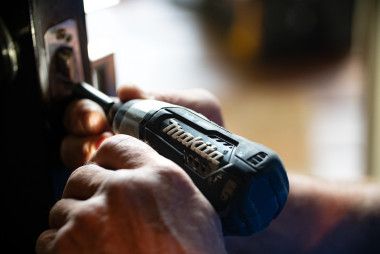Homebuying Mistakes
Have you ever noticed that when friends, family, or acquaintances buy their first homes, everyone tends to congratulate them? They’ve worked hard with a real estate agent and now hopefully have the property of their dreams? Do they brag about the deal they got and the great features of their new neighborhood?
It’s great that these buyers are so happy to begin homeownership. However, the purchaser could be setting themselves up for an unnecessary painful financial future in exchange for short-term enjoyment of real estate. Does this person truly understand the incredible, long-lasting financial consequences of their decision? Have they even considered how devastating their choice may be in future years? Despite popular belief, buying your first home could be a huge mistake financially.
When buying a home for the first time, it’s understandable to make mistakes. You’re going into a new venture with bright eyes for the future and seem to be ready for anything that comes your way. However, some things that come your way can be avoided if you take the time to truly assess what kind of home you’re capable of owning.
Rushing into or insisting on buying properties you can’t really afford are just two ways that first-time home buyers put their future selves and finances at risk. Here are some common home buying mistakes to avoid.
1. Having high debt
Having a lot of debt—especially in comparison to your income—will make it that much harder to get a loan or a good rate on your mortgage. Getting a loan may help you in the short term, but your finances will continue to struggle long term. High debts can also hurt your credit score, which will make it that much harder to buy a home in the first place.
Before starting the home search, calculate your debt-to-income ratio. Most lenders will restrict borrowers to a 43% ratio. Got more debt than that? You’ll need to pay it down first.
2. Buying a property you can’t afford
When buying a home, buying less than what you can afford is actually the right way to go. There may be tons of expenses you haven’t accounted for. You also probably don’t need all that space you thought you did.
3. Prioritizing style over structure
Think about why the style is so important to you. Are you trying to impress someone or prove something to yourself? Style is important for someone to feel comfortable in their own home, but the structure is much more important. A style can be created after the home is bought, but structure is much more complicated to work on after the fact.
4. Diving into the home search too soon
Looking at homes is so much fun, but it shouldn’t take precedence over saving. Depending on where you live, the costs of owning a home with closing costs, down payments, and taxes can be really expensive. And saving for the home and putting a good amount of money down can help avoid higher interest rates in the future.
5. Forgetting to account for closing costs and other expenses
Depending on location, closing costs and other expenses could be a lot more money than you were expecting to pay. Owning a home is so much more than a down payment. There are property taxes, HOA fees, homeowners insurance, repair costs, and more. Consider all of the fees and costs for the area you’re looking to buy a home in before you settle on anything.
6. Skipping mortgage pre-approval
Even though you don’t necessarily need mortgage pre-approval, it is a good thing to have. It can help put sellers at ease if your credit isn’t so great, you’re trying to move to a popular area, or you don’t know how much you can afford. In these circumstances, a pre-approval is like a check mark next to your name to show a seller that you’re safer to work with than other buyers.
7. Not shopping for mortgages
Not every mortgage is the same. Shopping around will help you find the best deal for you and your housing needs. Think of it like buying a car where everything can be negotiable and you have to work in your best interest.
Five common first-home strategies—and their downsides
Some homeowners don’t hold back. They want the biggest, fanciest luxury property one can possibly afford in the best possible school district or coolest part of town. There’s nothing wrong with having goals and dreams. But in reality, this is a big home buying mistake. It stretches out your financial limits more than necessary. There’s already a tough, long road ahead when buying any home. Why make it more difficult than it needs to be? Take a look at the examples below to see what we mean.
1. Buying the most expensive property you can afford
Sally was an employed 27-year-old making about $80,000 a year. She used her life savings of $25,000 toward the down payment on a $425,000 luxury condo in the city. Sally thought this was a good investment because condos in that part of town are the most in demand, which would only increase the value of her property.
Three years in, Sally finds that prices have only risen modestly and that she can no longer afford to keep up the lifestyle she had as a renter. Rising HOA fees and expensive mortgage payments have forced her to sacrifice in other areas of her life. Meanwhile, another new condo complex was built recently with far more in-demand condos than hers.
Unfortunately, this is the quickest way into the middle-class American dream graveyard. This type of first-time home purchase is often accompanied by financial choices, such as:
- Putting ALL of one’s savings outside of retirement into the home
- Borrowing for the down payment
- Using over a third of one’s after-tax take-home pay to cover the mortgage
Meanwhile, the only benefit Sally is getting is the ability to say that she lives in a really cool area. When people buy property outside of their price range, they sacrifice almost everything else. Here are some of the consequences of that kind of choice:
- Your career: You lose almost all flexibility in career decisions when you stretch yourself to buy property. You have only two choices—stay at your current job or a similar one that pays about the same in your current city or hope for a massive raise and huge signing bonus to help you out if you want to move elsewhere.
- The stability of your financial position: Because you stretched yourself to your financial limit to qualify for that loan, you are basically living paycheck to paycheck. This could cause you to put essential purchases on credit cards, causing more instability. And when you own a home, it’s a matter of when not if you will be hit with unexpected and irregular maintenance expenses.
- Entertainment expenses: Just like Sally found out the hard way, you may find that you have to cut out other lifestyle choices, like eating out, vacations, new cars, etc. What’s the point of living in a nice area if you can’t do anything in it?
- Relaxation time: Your relaxation time is limited partly because of the financial reasons listed above, and partially due to the fact that you have to spend more time maintaining your home than you did previously as a renter. You surely can’t afford to outsource that maintenance in this position.
Remember that just because you are buying a “reasonable” property that is not in the ludicrously expensive part of town, it does not mean that the property is “reasonable” for you. This type of transaction is arguably one of the most foolish financial decisions made by people today.
2. Playing it too safe
Abby and Jared moved to a home of their own to start a family. With a combined earning $120,000 per year, they had $50,000 saved up. Their lender said they could qualify for something in the $700,000 range, but they decided on something more reasonable in the $400,000 range. If anything was wrong with the schools or area, they could just move before the unborn children got to school age. But years later, they have triplets and the house is just too small for their needs. When they sell the home, they just about break even.
If you buy a reasonable property that you can easily afford, you aren’t doing it wrong, but you won’t necessarily turn your home into an “investment.” Your home will allow you to do the things you love to do, and you’ll come out a little bit ahead of renting an equivalent unit if you stay there a few years on average. But remember that “within reason” is relative. You still have to determine if you can easily afford the payments on a property—and have plenty of cash on hand to handle problems as they come up. Life is unpredictable and you’ll be glad you put money aside to deal with the unexpected.
3. Having lots of exit strategies
Angie had always been careful with her money. She drove a modest car and worked hard to earn a $60,000 salary. She decided to make a change and buy a house to lower her monthly payments. She researched for months and waited for the perfect deal on a property, only looking at ones that met her strict criteria.
Two years later, Angie gets a promotion at work that means she has to move to Europe for two years. She rents her home in the meantime and by the time she’s back in the US, she’s made a modest income from her home that’s even more valuable now that property values in the area have risen. She is stuck with three excellent choices—to move back into the property herself, continue collecting rent, or to sell and cash out on substantial equity.
In this case, the prospective purchasers understand that the home-buying process is a massive financial decision—likely the largest of their lives thus far. Therefore, they have decided to put in time and research commensurate with the significance of the purchase. They are also thinking what’s next? as a part of their decision-making process. It’s important to realize that just because you buy a home, you do not have to commit to that particular location for life. It is quite wise to be flexible, as your life’s direction can change quite dramatically in a few years.
The problem with Angie’s way of thinking is that you only really make money on your investment if the values of properties in the area that you’ve selected go up. This is often something that is outside of your control.
4. Flipping multiple homes
Ashley and her husband, Jacob, have good jobs so every few years they purchase a rundown home to flip and make a profit. Afterward, they sell the homes and pocket the largely tax-free gains, which give them a nest egg of $500,000 in after-tax gains that secures their futures financially.
This type of strategy is often called a “live-in flip.” A downside is that in order to be successful the home buyer will either have to fix the property up themselves or manage contractors to do so while living there. And it’s important to make sure that the homes being flipped are within a reasonable price range of repair in order to be worthwhile investments while keeping in mind the fees and homeowner’s insurance policies of each property. Another downside is if you don’t know the area you’re buying houses in well enough you may need to pay a real estate agent to help you out.
The advantage, of course, is that the home buyer is no longer dependent on the value of properties in the local area going up to make their profit. If they understand what the property will be worth after all the repairs are made, the buyer can at reasonably low risk go into the property with a profitable exit down the line. The home buyer also can take as little or as much time as they desire to fix the property up. This is as long as the property is habitable upon the purchase, and they can live in reasonable comfort during the improvement phase.
Furthermore, when live-in flippers go to sell their properties, they can often exclude most of the capital gains on their primary residence from taxation—a nifty loophole that makes this strategy extremely advantageous.
5. House hacking
Garrett is a young, single 20-something who has determined it’s in his best interest to stop paying rent and find an affordable duplex to fix up and rent out. He gets a fair deal, moves in, and begins to renovate it. A few months later, he rents out the property to some hand-picked tenants and uses their rent to cover his mortgage. This allows Garrett to live rent-free and build equity at the same time. Having repeated this strategy two more times over the last few years, Garrett has now moved and is living in a luxury condo financed from his rental properties and continues to make passive income.
“House hacking” is the ultimate financial decision for most first-time buyers. This entails buying a piece of investment real estate with the intention of living in it while renting out other units to cover the mortgage payments. This enables the owner to live for free or for much less than other local homeowners or renters. And it can be combined with the live-in-flip strategy discussed earlier. It’s quite feasible to buy an investment property that needs some work and fix it up, increasing both the value of the property and the rent that it can command. This leaves the purchaser in an advantageous situation.
One downside to this is that buying a duplex comes with more upfront costs than a single-family home in at least some areas. And that would mean it’s even more important to improve your credit score by lowering your debts and saving money. If you need help, getting a mortgage pre-approval or even private mortgage insurance can qualify you for a loan you might not otherwise be able to get. However, this does mean the cost of your loan increases.
CLIENT SUCCESS STORY
Meet John & Lynn
"We were busting at the seams! The house we were living in was our starter house. It was great when it was just Lynn and I, but when our two kids came along we quickly realized we needed more space!"
John & Lynn had some hurdles to jump - figure out how to sell their house & buy a new construction home at the same time. They also did all of this during the COVID-19 pandemic!
Our Selling Programs:

Instant Cash Offer
Want to bypass the traditional selling process? The Tosello Team will connect you a competitive, no obligation cash offer from an iBuyer for your home, so you can skip out on showings and move on your own time.

Fix Up, Sell Up
Get your home prepped for sale without the hassle or any out-of-pocket costs with a service provider.With most iBuyers and Cash Offer programs, you’re on your own to negotiate, and it can be difficult to determine the actual net proceeds you’ll earn from selling your house.
Our Selling Programs:

Buy Before You Sell
Make a winning, all-cash offer.
In the conventional home buying process, you need to sell your current home so you can purchase your next one. This leads to rushed decisions and unnecessary stress. Not anymore.
We have access to a program to get you the cash you need to buy before you sell so you stay in control.

Sell Your House With Us
We will market your house like crazy to generate the highest price in the shortest amount of time.




